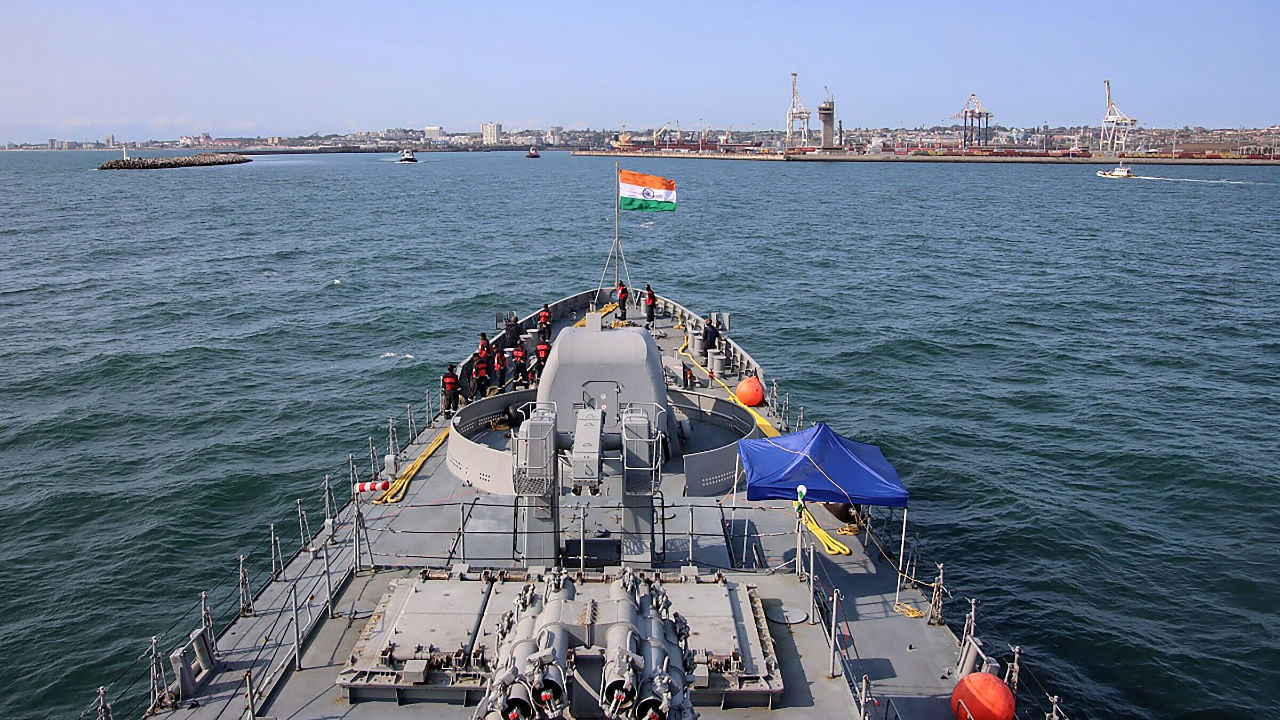
India is taking steps to increase its defence exports and emerge as a hub of defence production in the Indo-Pacific region. It is useful for building up a domestic defence-industrial-technological base, creating local capabilities and, in the long run, will reduce weapons imports.
Indigenously-built critical defence systems will enhance the overall strategic autonomy by reducing dependence on foreign partners. Therefore, India's efforts to market defence systems and engage global players in defence production assume significance. This is the context in which the second India-Africa defence dialogue (IADD) was held on October 18, 2022, in Gandhinagar, Gujarat, on the sidelines of DefExpo 2022. The first IADD was held in Lucknow in February 2020. The Gandhinagar Declaration was adopted after the IADD-2, and the dialogue has been institutionalised. It will be held biennially after every DefExpo.
While speaking at the IADD, India's Defence Minister Rajnath Singh linked defence with development. He said, "peace, security and development are interrelated. Security is essential for enabling development in the region". He noted that India has developed a "robust public and private defence industry" that enjoys "the advantage of abundant technical manpower". He said India's defence industry "can work with you to fulfil your defence requirements". This is in line with India's Africa policy that keeps the requirements of Africa at the centre and is guided by African priorities.
Africa is a maritime neighbour of India and, therefore, is an inalienable part of India's Indian Ocean strategy. Indian naval presence in the Western Indian Ocean and the Red Sea is a routine affair and has contributed to making the region more secure and stable. As East and Southern Africa are getting linked with the strategic geography of the Indo-Pacific, the geopolitical activities in this part of the world will have a bearing on the entire Indo-Pacific region. The IADD and enhanced Indo-African security partnership are important in this strategic matrix.
Africa faces multidimensional security challenges. The great power rivalry between the West on the one hand and Russia and China on the other has emerged as a key feature of Africa's strategic landscape. India's growing presence, especially in the domain of defence and security, in the region will present African states with more opportunities while helping them avoid taking sides in the intensifying great power rivalries.
Capacity building and the training of military personnel from several African countries have been India's core competencies in the defence domain. For example, Nigeria's current President, Muhammdu Buhari, was trained at the Defence Services Staff College in Wellington (Tamil Nadu). However, the growing capabilities of India's indigenous defence industry and the willingness of African countries to look beyond the traditional supplier of arms has presented India and Africa with opportunities to build mutually beneficial defence partnership.
India is making efforts to sell the Tejas fighter aircraft to Egypt. The IADD will build on such bilateral initiatives. In March this year, Uganda reached out to India and signed an agreement to provide maintenance and technical support for operating Su-30 MK fighter aircraft. Many other African countries operate Russian-made weapons, and India can explore similar opportunities.
Prior to the IADD, Defence Minister Singh held bilateral discussions with the six African defence ministers, five of which hailed from Central and West Africa. It included traditional partners like Ghana and emerging partners like the Gambia, Central African Republic, Cabo Verde and Mauritania. The intensive focus on the land-locked, littoral as well as maritime countries of West and Central Africa is critical for expanding the strategic compass of India's foreign policy. It opens up opportunities for further enhancing India's strategic presence.
The region was historically absent from the list of India's traditional defence partners in Africa, and the growing relationships with the regional states would be welcomed. India recently launched joint patrols in the Gulf of Guinea with the Nigerian navy and made port calls in Nigeria and Gabon. The bilateral meetings with West and Central African defence ministers fit well into the pattern of increasing overall relationship with this sub-region of Africa.
The Sahel region (a semi-arid strip of land that lies below the Sahara desert) is facing the challenge of Islamist terrorism and has been undergoing a lot of churning in terms of domestic politics as well as foreign policy. Military coups have been a routine affair in the last two years. The presence of foreign mercenaries and the changing regional strategic orientation away from France towards Russia (and, to an extent, China and Turkey) is a challenge for Western influence. India's entry into West and Central Africa is in this complex scenario.
From the strategic perspective, the IADD is not just a platform to engage with Africa but an important strategic policy initiative. The real significance of the IADD will lie beyond the numbers in defence sales. The increased Indian defence footprint in Africa is no doubt important. But the true value of the IADD lies in creating a platform that will regularly bring policymakers, experts and industrialists on one forum and create opportunities for sustained and intensive dialogue between stakeholders from India and Africa.
(The author is a strategic analyst based in Pune and specialises in Great Power Politics and Indo-Pacific Security)
Disclaimer: The views expressed above are the author's own. They do not necessarily reflect the views of DH.